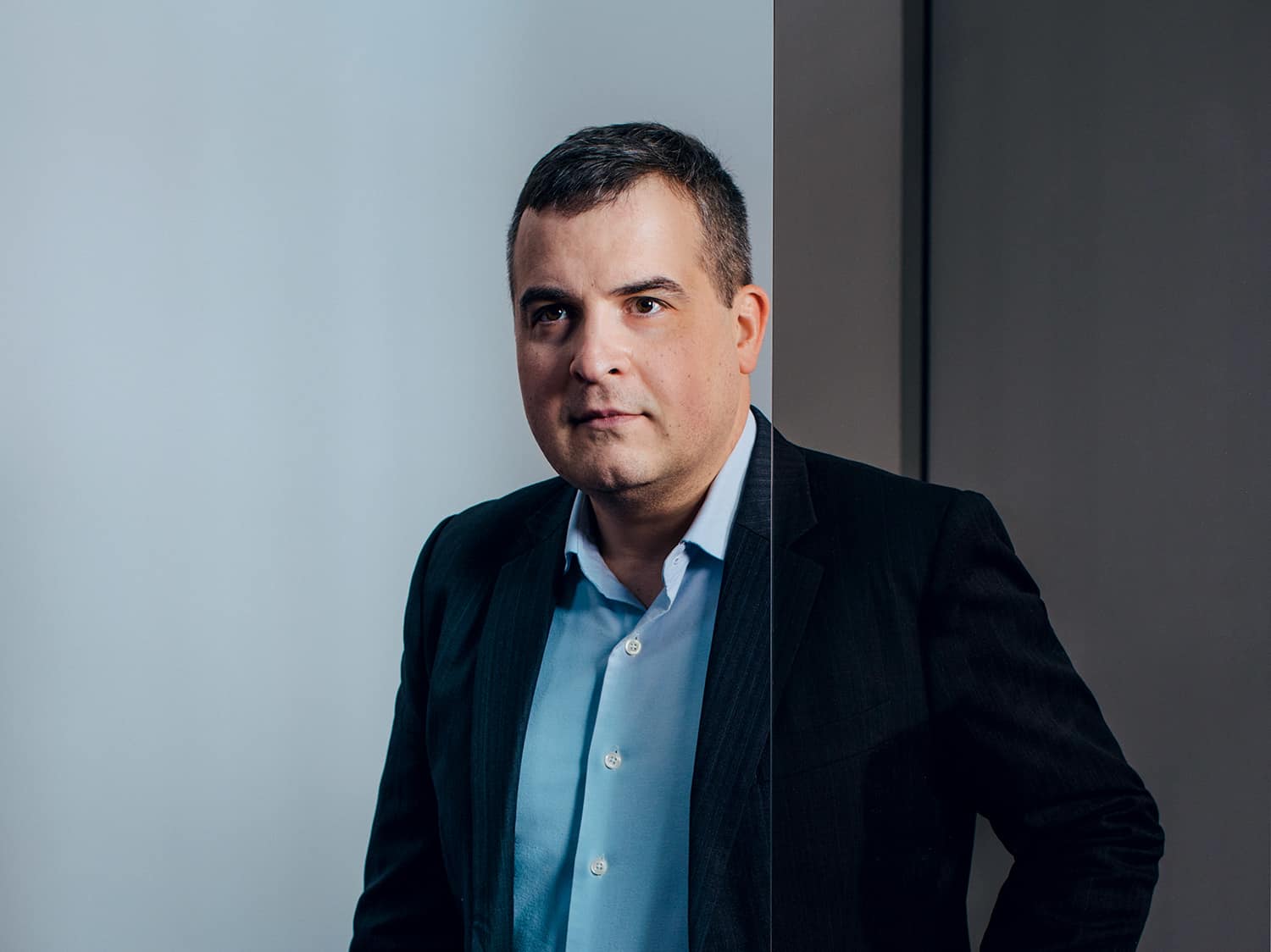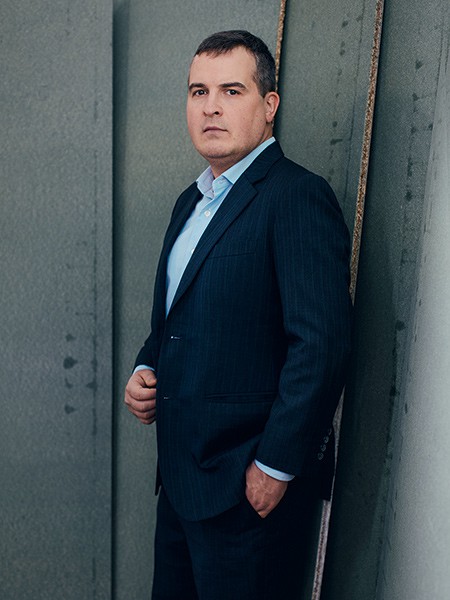“I exposed a huge group’s fraud.”

Arnaud Vagner (H.01) is the man behind Iceberg Research, the financial-analysis firm that brought down the Noble Group, ranked 76th in the world in turnover. After many years of staying in the shadows, he can finally discuss this case openly.
Arnaud did not seem destined to become an expert in esoteric financial issues. Interested in the public sector, he chose to major in public management at HEC. It was just by accident that, diploma in hand, he decided to do a French International Internship with BNP Paribas in Hong Kong, still without any firm career goals. Through his tasks for the bank, he developed a taste for financial analysis. He continued to work in the banking sector in Asia. In 2011, a turning point. He became a credit analyst for a major commodities-trading enterprise: the Noble Group. The company, with about US$6 billion in share capital, dealt with leading raw materials (mining, agricultural, energy-related) on every continent. “There were about 300 people working at the Hong Kong headquarters, but the group had several thousand employees all over the world, since it had diversified upstream into production. It had sugarcane fields in Brazil, pipelines in the United States, iron mines in Australia…. A lot of mistakes were made during the diversification process. But the founder and president, Richard Elman, refused to admit these mistakes, and records began to be falsified, probably from around 2009.” This is what would result in Noble Group’s collapse. In the two years he spent working for the group, Arnaud was not one of the ten or so “insiders” who knew about the fraud. However, he noticed more and more discrepancies. “Managers whose attitudes were unacceptable were left in their positions, which didn’t make sense. Later it came out that these managers had played a big role in the fraud. My job was to oversee credit risks, but we were told to focus on appearances rather than reality, and to produce reports that would reassure credit agencies. The company became a Potemkin Village, all surface with no substance, and my colleagues and I were paid to just figure in it without even realizing it!”
Noble suspected
Arnaud left Noble in 2013. Fed up with corporate conglomerates, he wanted to launch his own company and tried three different projects: an internet site, a trading operation dealing with major shipping enterprises, and Iceberg Research, a financial-analysis firm specializing in identifying corporate fraud. It’s the third choice that took off. For Arnaud began to peel back the layers of a case he knew well: that of his ex-employer. “I spent hundreds of hours pouring over every detail of everything they published. I realized a crucial factor: Noble overvalued its stocks and camouflaged its debts through financial engineering, the same kind of fraud that destroyed Enron.”
“Noble Group became a Potemkin Village, and my colleagues and I were paid to just figure in it without even realizing it!”

2001-2003: French International Internship in Hong Kong with BNP Paribas
2011-2013: Senior credit analyst with the Noble Group 2015: February, first report exposing the Noble Group’s fraudulent accounting practices
April: The Noble Group’s lawsuit against him begins
2016-2017: Reports on Tutor Perini Corporation and Tibet Water Ltd.
2019: Report on Trafigura, liquidation of the Noble Group Ltd., end of the lawsuit
In February 2015, Iceberg Research posted on line a preliminary report exposing Noble’s manipulations “in a conservative way, covering much less than what finally came out.” The group’s stock price immediately dropped by 9%. Noble charged him with conspiracy, embroiling Arnaud in a lawsuit whose length and costs he could only guess at. The ramifications were more than disagreeable. “People tried to intimidate me; I was followed; I received threats. Every time I posted a new report on Twitter, someone knocked at my door. The police were concerned and formally warned Noble.” Arnaud emphasizes that, fortunately, he never felt himself to be in any real physical danger and he was not really frightened.
The trial, which took place in Hong Kong, was mired in the byzantine processes of British law. “From the beginning, my attorney warned me that my adversary’s strategy would be to bankrupt me.” Arnaud’s legal fees began to rise. Nevertheless, at the beginning of his adventure he relied only on his own savings. “Today, Iceberg Research is a short seller: we pay ourselves by taking short positions on the share prices or bonds of the companies whose fraudulent practices we are exposing. This wasn’t the case with Noble. I did it for free, to launch Iceberg Research, which was unknown then. And it took awhile before press reports backed me up. In July 2015, the Financial Times published an investigation that validated my criticisms, which legitimized what I had done.” What was Arnaud’s motivation behind investigating Noble? “I could have contacted Noble’s financial division and threatened to publish reports about the company, and then negotiated with them, but that would have been against my ethics. Their efforts to intimidate me just made me more determined. The moment they started hounding me, there was only one thing I felt I could do: continue to investigate and publish all the time.”
“Today, they are the ones who are bankrupt; not me.” Duly noted. Months pass, Iceberg Research’s shocking reports multiply, Noble starts falling apart and eventually loses 99% of its stock market value … until it was finally liquidated. Last November 5, the seemingly endless lawsuit finally drew to a close, in Arnaud’s favor, and he recovered his legal expenses. And was finally able to move on to something else. “For the past four years, that lawsuit forced me to concentrate on Noble.”
Countdowns
Even so, Arnaud was able to report wrongdoings in two other companies: Tutor Perini, an American construction firm overvaluing its stocks in its financial report, and Tibet Water Resources, a Chinese company reporting brewery activities that didn’t exist. In both cases, Iceberg Research successfully paid itself by short selling the stocks of the companies.
“I never try to cause a sensation. I make rational arguments. When I publish a report, hundreds of specialists in the sector take note.”
These days, Arnaud is once again tracking a giant commodities trader: Swiss company Trafigura, a specialist in trading petroleum and metal products, with a turnover of US$180 billion. Once again he has pinpointed overvalued stocks in the company’s financial report. “I never try to cause a sensation. I make rational arguments. This is why the market trusts me. When I publish a report, hundreds of specialists in the sector take note.” His Twitter account now has more than 5,000 followers. And he is no longer alone at Iceberg Research, which he leads from both Europe and Asia. “I’m the boss and the public face of the business. I rely on contributors, but I preserve their anonymity, so that they won’t have to face the same problems I’ve had to deal with.”
Audits that aren’t stringent enough?
Did the battle with Noble leave him with wounds and scars? “If I had it to do over again, I would still do it. It’s important to search for these accounting frauds. Only an independent organization can do it. When you’re working in a bank or an accounting firm and you have reached a certain hierarchical level, in your 40s, you sometimes have to make compromises to maintain your position. Many accountants validate accounts that they know have been falsified.” So, is it all corrupt? “No, but unless you’re working with short sellers like Iceberg, you rarely find professional interest in denouncing accounting fraud.” Arnaud is amazed that the problems caused by financial fraud are so little recognized. “Victims of fraud are rarely heard from, even though this kind of fraud can destroy people’s lives. If your retirement savings go up in smoke, the impact can be devastating. A lot of Noble’s small investors in Singapore found themselves in that kind of situation.”
Published by Marianne Gérard

